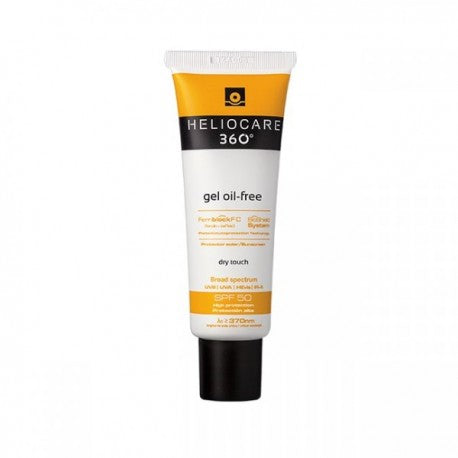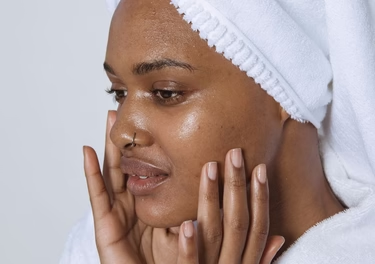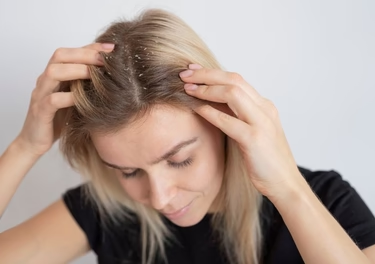Everything To Know When Choosing an SPF

The three magic letters that hold the secret to anti-ageing: SPF. We all know how important it is to wear SPF. But with so many elements such as texture, factor strength and protection type to take into consideration, how do you know which option is right for you?
We break it down into manageable chunks so you can master SPF and safely enjoy soaking up some rays.
The first thing to consider is your skin type. Most skins fall into 1 of 3 categories:
- Dry
- Oily
- Diffused redness
Once you've worked out which skin type you are, it will narrow down your choices of sun cream.
SPF for Oily Skin
Since many SPFs offer a heavy and moisturised finish, it's important to choose something that is oil free. This will reduce shine and prevent congestion in the warmer seasons. Gel and mousse formulations are also a great pick for those with over productive sebaceous glands. Our top picks for oily skins:
Heliocare 360 Gel Oil-Free SPF 50. This oil-free, dry touch sunscreen protects skin against UVA/UVB rays, visible light and IR-A (infrared radiation -A). The sunscreen is also enriched with Fernblock technology, a powerful antioxidant supported by actives, which helps to repair sun damage.
Image Skincare Prevention+ Daily Matte Moisturiser SPF 32. Some oil-free sunscreens can leave skin feeling dry, but this SPF moisturises and hydrates skin. The micro-sponge technology absorbs skin's surface oils to leave skin with a matte, non-greasy and shine-free finish. Added antioxidant thiotaine protects skin against harmful free radicals.

EVY Sunscreen Mousse SPF50. This unique, non-sticky mousse formula is suitable for both face and body, is oil-free and doesn't contain alcohol or any other potentially irritating preservatives. The Proderm technology allows the mousse formula to penetrate and protect throughout the entire upper layer of skin for superior sun protection.
SPF for Dry Skin
Mature or dry skin types often relish a healthy dose of suncream. The added hydration and silky texture can create a soft and nourished base. Cream sunscreens are the best choice to prevent further dryness. Many moisturisers for dry skins contain SPF already, but we always recommend using an additional SPF, particularly in summer. Our top picks for dry skins: Mesoestetic Moisturising Sun Protection SPF 50+. Skin is hydrated with this lightweight formula, which is ideal for daily use but gentle enough to care for post-procedure skin. Both physical and chemical filters combine to provide an exceptionally high level of protection against UVA and UVB rays.
Mesoestetic Moisturising Sun Protection SPF 50+. Skin is hydrated with this lightweight formula, which is ideal for daily use but gentle enough to care for post-procedure skin. Both physical and chemical filters combine to provide an exceptionally high level of protection against UVA and UVB rays.
SPF for Redness
Red, sensitive or rosacea skins often struggle with the thought of using suncream. Some suncreams contain chemicals, perfumes and irritants that can aggravate the skin worsening the condition or skin concern. It's all about trial and error with skin redness and finding a base that feels comfortable for you. Our top pick for red skins:
Ultrasun Extreme Sunscreen SPF 50+. This SPF is perfect for highly sensitive skin, providing powerful protection in a gentle, smooth formula that nourishes skin whilst protecting against UVA and UVB rays.
Physical or Chemical Sunscreens: Which is Best?
So you've picked your base, let's take a look at the type of protection that works best. All sunscreens fall into one of two categories: physical or chemical.
Physical blockers work by deflecting UV rays from the skin. Ingredients such as titanium dioxide and zinc oxide create a 'film' like occlusion on the outer layers to act like a shield from harmful UV radiation.
Pros: Good for red/rosacea skins as they prevent heat from entering the skin and should avoid crossing the skin's barrier, therefore preventing further irritation.
Cons: Can leave a white residue on the surface. Flashes from photographs will reflect and can cause the face to appear extra light in pictures. These are also not a good choice for acne prone skins as they can lead to further outbreaks.
Chemical blockers such as avobenzone and homosalate absorb UV rays, destroying them before they can have a harmful effect.
Pros: These are invisible sunblocks that can be worn with ease under makeup without leaving any white marks.
Cons: In some cases, chemical blockers can make a specific type of pigmentation called Melasma worse. Whilst absorbing UV rays they also draw heat into the skin, which can trigger this type of pigmentation.
Factor Strength
There are lots of misconceptions around the factor number of an SPF. Many people think the higher the factor the better. It's important to note that the factor number of an SPF is an indication as to how long you can stay exposed to the sun without burning, compared to that of wearing no SPF at all. Since everybody's skin has a different tolerance to sun, it's important that you find the factor that works best for you.
How Does SPF Work?
If it takes 20 minutes for your unprotected skin to start turning red, using an SPF 15 theoretically prevents burning for 15 times longer about five hours. Not so good at working out the maths? Another way to think of it is in terms of percentages:- SPF 15 filters out approximately 93% of all UVB rays
- SPF 30 keeps out 97%
- SPF 50 keeps out roughly 98%
This may seem like a tiny difference but if you are on light-sensitising medication, have a history of skin cancer or are of the blonde haired blue-eyed variety, those extra percentages will make a big difference. We recommened wearing an SPF of at least 30 during the winter and no less than SPF 50 in summer or when on holiday. You will still get colour but hopefully avoid the dreaded sunburn and prevent the post holiday peel!
Since reddening of the skin is caused by UVB rays, the factor SPF you choose isn't necessarily doing anything to protect against ageing, caused by UVA rays. It's these rays that lead to premature ageing in the skin and unfortunately these are present all year round. They penetrate through cloud and glass to get to you, which means unless you're willing to live in a cave, you will be exposed to these at some point.
Most skincare manufacturers are well aware of the dangers of UVA and have taken extra precautions to protect your skin from been harmed. Look out for SPFs that contain antioxidants to help maintain skin's youth and keep the UVA rays away.
Keep your skin protected from the sun with our full range of suncare products at Face the Future online.
Image source: FreePik





















